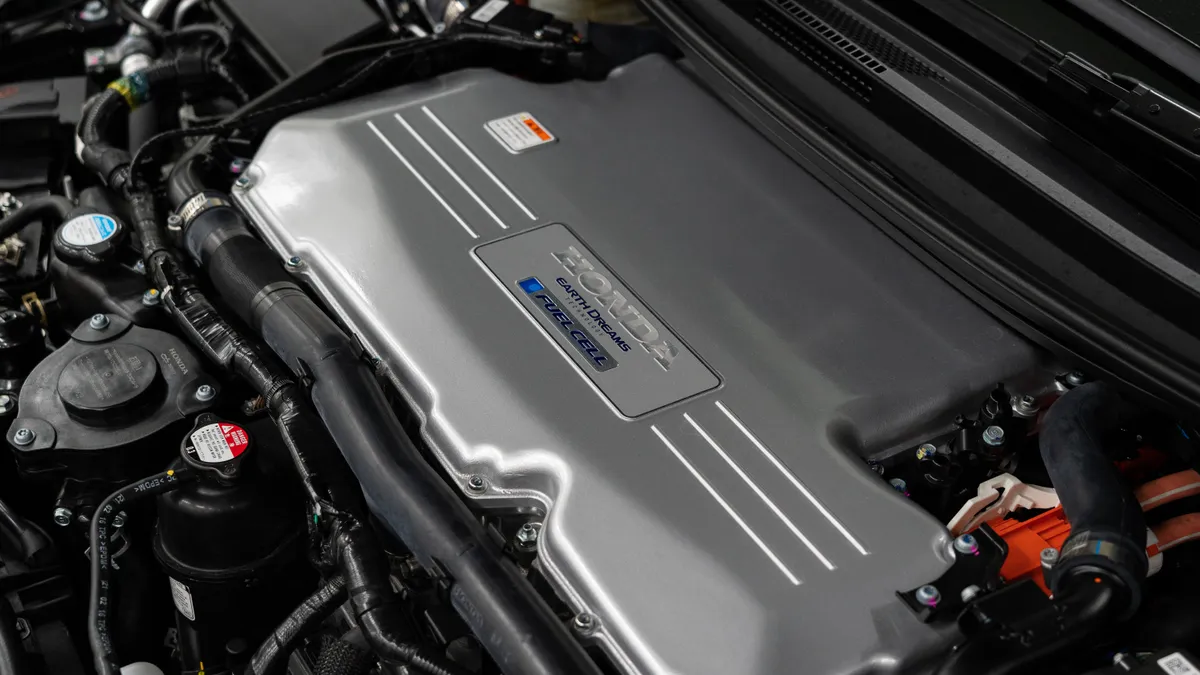As sales of electric vehicles continue to grow, innovative technologies being developed by automakers and industry suppliers promise to increase driving range, a common concern among prospective EV buyers, which has limited the growth in EV sales. These three companies are developing new ways to allow electric vehicles to go further on a single charge without changing battery technology.
BMW: A suspension that charges the car’s batteries
BMW filed a patent in Germany to recharge EV batteries using the kinetic energy of the vehicle’s suspension as it drives along, according to documents discovered by CarBuzz. As the suspension responds to bumps in the road, an actuating disc connected to the suspension control arm would spin a flywheel that drives a generator, producing electricity. The power could be used to charge either the vehicle’s 12-volt battery or its high-voltage traction batteries, but no details were available as to how much of a charge it could provide.
Continental: A new brake design for longer EV ranges
Continental, known for its tires, announced a newly developed brake caliper for disc brakes specifically designed for electric vehicles, which it calls the Green Caliper. According to a Nov. 24 press release, the caliper design is “significantly lighter than previous designs and has a lower residual brake torque.” It could save up to five kilograms (11 pounds) per brake.
“With the new Green Caliper, we are providing a production-ready technology that unlocks additional potential for the range of an electric car,” said Continental’s Dominik Hiss, head of product center friction brakes, in a press release.
Honda: Using a fuel cell to complement a plug-in EV
Honda announced plans last week to begin production of an all-new hydrogen fuel cell electric vehicle in 2024. According to a press release, the batteries can be used for local trips while the fuel cell would power the car for longer drives. Where available, such fuel cell vehicles can be refueled with hydrogen in just a few minutes. The vehicle, a Honda CR-V, will be produced in Ohio.
Honda and General Motors have partnered on a fuel cell manufacturing joint venture since 2017 in Michigan. GM recently announced a joint development agreement with Nel Hydrogen US to advance Nel’s electrolyzer platform. According to a press release, “the two companies are looking to enable more cost competitive sources of renewable hydrogen.”
More EV-related announcements are expected at the upcoming CES 2023 show in Las Vegas. The show will host Stellantis CEO Carlos Tavares as a keynote speaker on Jan. 5, 2023, who is expected to unveil an electric vehicle concept truck.












